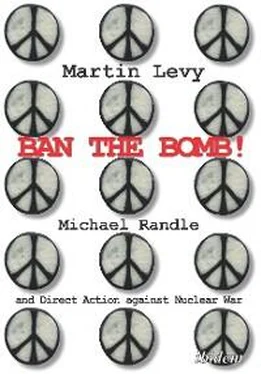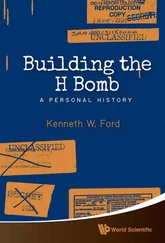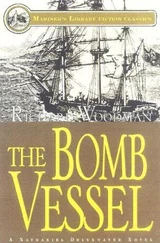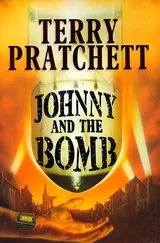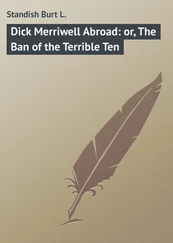No, my father had bought a much larger house by then and we lived in that. Again, in Cheam, but halfway up the hill on a road called Burdon Lane, leading to Banstead Heath.
Was your mother happy remaining in England?
I think so. She had two brothers, Bill and Michael and an adopted brother, John. Michael at some time in the 1930s had gone to live in Australia and lost touch with the family. But Bill and John moved to England. We all loved Uncle Bill because he was great fun to be with and had a quick and mischievous sense of humour. He was, in the words of the popular song, one of ‘McAlpine’s fusiliers’, which is to say, a labourer working for the firm, MacAlpine & Sons, which built many of Britain’s roads and airfields in the 1940s and 1950s. Bill was also a keen Labour supporter and had a big influence on my political thinking as a youngster.
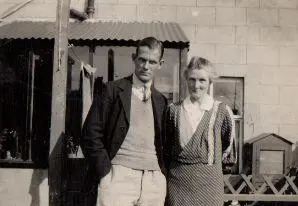
Fig 4: ‘Uncle Bill’ with Michael’s maternal grandmother, Esther. Photographer unknown. Private Collection.
After St. Dominic’s you attended Douai School in Woolhampton, Berkshire, which says to me a couple of things: firstly, that the family had had a ‘good war’, at least in financial terms; and secondly, that your parents had high personal and social ambitions for you. Can you tell me a little bit about that experience?
After St. Dominic’s, Douai was very relaxed. The first thing that struck me, oddly enough, was to do with bath-time. The individual bathtubs were partitioned off from one another by wooden cubicles, where perhaps half a dozen boys or so took baths at the same time. The priest in charge on this occasion, Father Alphonsus Tierney—or Alf as we called him amongst ourselves—, said, ‘If you’re not out in five minutes, you’ll get the stick.’ And one boy said, ‘Where?’ And the priest said, ‘On your bottoms.’ And I thought, Oh my God [laughs]. You can use a word like that. It was a much freer atmosphere.
The person who had the biggest influence on me at Douai was a lay teacher, Oliver Welch, a very good historian and teacher. He and the headmaster, Father Ignatius Rice, were part of a Catholic intellectual circle, which included G.K. Chesterton and Ronald Knox. He injected a lot of common sense into our understanding of religion and politics. On one occasion we were studying the medieval popes’ habit of excommunicating their political and religious rivals, when one boy put a question which, I think, was troubling many in the class. What effect, he asked, did the excommunication have on the individual concerned? Welch looked puzzled for a moment, then, realising what the boy was driving at, replied ‘You mean on the future of his immortal soul? Oh, none whatsoever!’
Another history teacher whom I liked a lot was a very genial monk called Father Dunstan. He was very partial to betting on the horses!
I once asked another priest, the man in charge of the junior school, Father Norbert Bill, if people who had been Catholic but lost their faith would be destined to go to hell. It was an important question for me as it wasn’t long since my father had ceased to be a Catholic. ‘We always have to trust in the mercy of Almighty God,’ he replied. ‘But it is a grim outlook!’
By the way, one of Welch’s books was about Mirabeau and the French Revolution. But the history lessons I remember best were about the English Revolution. That said, by the time that I was about fourteen or fifteen, I was most absorbed in Irish history. I even had an argument in class with Father Ignatius Rice on the subject. He put forward an English point of view about the Ulster settlement. I think his line was that the north of Ireland was underpopulated, so it was reasonable for Scots and English people to settle there. I put forward an Irish republican position. But then, later that day, when I was walking in one of the cloisters, he tapped me on the shoulder and said, ‘Some day you should talk to Mr Welch about Ireland. He’s just been destroying all my theories.’ This conversation took place at about the same time as I was in the habit of teasing some of the boys with the Irish nationalist ballads, some of which I’d learned from Uncle Tom. You could probably say that I had become a bit of a rebel! I remember upsetting one boy by reciting the opening lines of one very anti-British ballad, which I’d come across in an Irish songbook. It began:
God’s curse be on you, England,
God strike your London Town,
And cursed be every Irishman
Alive or yet to live,
Who’ll e’er forget the death they died
Who’ll ever dare forgive.
Were there any other subjects that you enjoyed besides history?
English. I’ve always read a lot. But at that stage it became a bit of a passion. One Christmas, while we were still living in Ireland, I was given a copy of Sir Walter Scott’s Ivanhoe as a present and I absolutely loved it. Then I read Scott’s other books, none of which, by the way, lived up to that first one. Another writer who was very popular with the boys at Douai was G.A. Henty, despite his being an old-school imperialist. I remember, in particular, his novel St George for England about the war in France during the reign of Edward III. It celebrated the English victories at Crécy and Poitiers.
What about activities outside of school? Were you taken to the pictures, for instance?
Oh, better than that. Once a week during the winter and spring terms we had our own film shows. These were another one of Father Dunstan’s responsibilities. He used to operate the projector. It was great when it worked, not so great when it broke down which was fairly regularly Then, occasionally, some American airmen from the nearby Aldermaston air base would drop by with some of their films, which, bearing in mind my later activities, seems a bit ironic .At Cabra we’d also had film shows, but much less frequently. I remember my sister, Margaret, telling me about one film which included a scene in which a woman was undressing. The nun in charge put a card in front of the lens so the pupils wouldn’t see it.
Before we leave your schooling, what exams did you take? I think children took the School Certificate in those days.
That’s right. At Douai, I took the School Certificate when I was sixteen and just scraped through. I got a distinction in English and did well too in history. Then I also passed the French exam.
Actually, I was keen to stay on at school for another year or two, partly because I wanted to play regularly in the rugby first team. But my father did not think that was sufficient reason to spend more on school fees!
So, what then? You found a job?
My dad apprenticed me, as it were, to a City firm called Sharp, Perrin and Company, which carried on a wholesale business in clothing and which dealt with dad’s factory. It was situated bang opposite the Old Bailey. I worked there in a couple of departments, the idea being that they’d train me to take over my father’s business. But I hated it there; I got increasingly fed up and only lasted about a year. However, to avoid a confrontation I didn’t tell my dad. I just gave in my notice and left. Then I took on another job as an orderly in a children’s hospital in the Banstead Heath area.
Every morning I would go through this pantomime of leaving the house for the London train at the usual time, but walk instead to the hospital. But then, eventually, he found out. Talk about the shit hitting the fan. My God!
Then, when that one finished, I applied for a job at Tribune and then for another one with a local newspaper. But I was very naive. In the latter case, I didn’t even sign the letter. I remember receiving this very snotty reply, something along the lines of thank you for your unsigned letter, but we’re sorry to tell you that there’s no vacancy here [laughs].
Читать дальше
